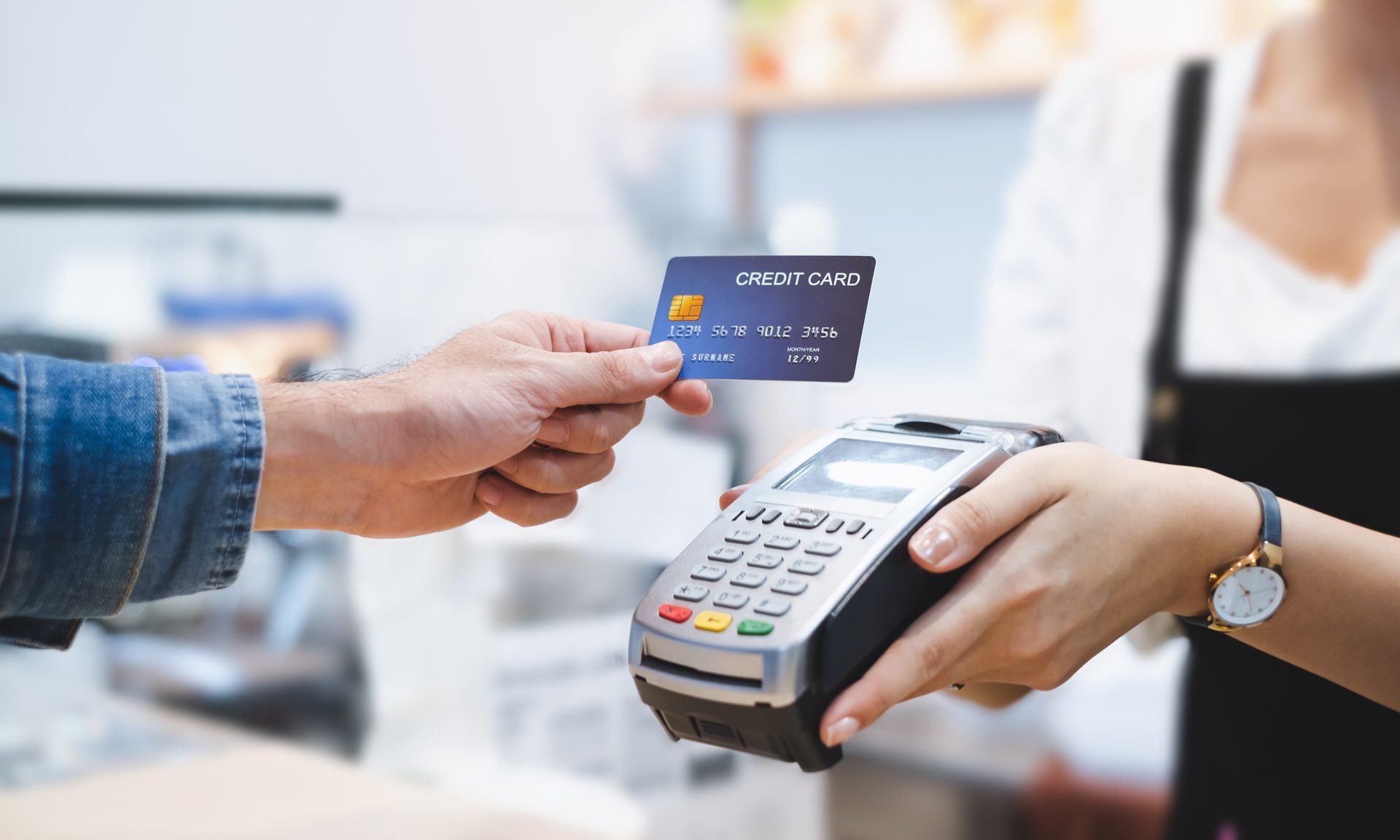What Is a Chargeback? Definition, How to Dispute
A chargeback is a reversal of funds after a customer has disputed a transaction with their credit card company.

Many, or all, of the products featured on this page are from our advertising partners who compensate us when you take certain actions on our website or click to take an action on their website. However, this does not influence our evaluations. Our opinions are our own. Here is a list of our partners and here's how we make money.
A chargeback happens when a customer is reimbursed for a debit or credit card charge after disputing it with their bank, rather than the business that charged them. The bank then contacts the business’s payment processor to decide whether the chargeback request is legitimate. When a customer files a chargeback with their credit card company instead of working with the business to resolve the issue, the business may owe extra fees in addition to refunding the charge.
The Fair Credit Billing Act of 1974 created chargebacks as a consumer-protection mechanism against credit card fraud, though disputes can also be initiated due to billing errors, unresolved customer complaints or unrecognized charges. Businesses want to avoid chargebacks as much as possible, so it’s important to understand how to prevent them in the first place, as well as how to work with your payment processing company to dispute them.

How do chargebacks work?
The chargeback process can vary depending on your payment processor. However, here is what you can generally expect:
- Debit/credit card charge is processed: A customer buys something from your business using a credit or debit card. The transaction is processed, and you receive the funds in your business account.
- Cardholder disputes the charge: The cardholder sees the transaction and files a dispute with the bank that issued their card, also called the issuing bank.
- Chargeback process begins: The issuing bank gives the cardholder a temporary credit for the transaction and then initiates the chargeback process by contacting your payment processor.
- Funds deducted from business’s account: After your payment processor learns of the chargeback, you’ll be notified and the disputed funds will typically be removed from your business account until the dispute is resolved.
- Business can dispute the chargeback: You're given the opportunity to provide documents to dispute the chargeback. If you don’t respond to the chargeback notification, the issuing bank will typically grant the chargeback to the customer.
- Issuing bank makes a decision: If you provide documents to dispute the chargeback, the issuing bank will evaluate the evidence and make a decision. If the bank rules in your favor, the customer has to pay and the disputed funds are sent back to you.
- Possibility of arbitration: If you or the customer is unhappy with the decision, you can enter an arbitration process where the chargeback dispute is taken to the associated credit card network (Visa, Mastercard, American Express, etc.) for a final decision. The entire chargeback process can take anywhere from two to three months.
Reasons for chargebacks
It’s important to understand why customers initiate chargebacks — and what you can do to prevent and dispute them. Generally, chargebacks fall into two groups:
Valid use of the chargeback process
The chargeback process gives consumers a way to dispute invalid transactions on their credit card statement by going through their bank instead of the business. Valid credit card disputes include:
- Unauthorized transactions: These are fraudulent charges that can be the result of the loss or theft of a cardholder’s physical card or the highjacking of their card information by another means.
- Billing errors: These may include incorrect purchase dates and amounts, failure to give credit for returns, charges for goods the customer didn’t accept and charges for goods that weren’t delivered as agreed.
- Unresolved customer complaints: If a customer is not satisfied with a business’s response when they have a concern about quality or another issue, they may dispute the charge.
Misuse of the chargeback process
There are situations where a customer may file a chargeback for reasons that aren’t technically legitimate. Invalid use of the chargeback process, whether by accident or on purpose, is commonly referred to as “friendly fraud.” Examples include:
- Avoiding the return process: A customer may decide to use the chargeback process instead of the return process if they feel that the return process is too difficult, they don’t understand it or the time limit for the return has expired.
- Not recognizing the transaction: A customer may forget they made the purchase or not recognize the business name on their statement and file a dispute as an honest mistake.
- Claiming a legitimate purchase is fraud: Finally, there are times when a customer makes a legitimate purchase from a business and then disputes the charge as a means to avoid paying for it.
Chargeback fees
In addition to losing the funds from a sale, a business may have to pay its payment processor a chargeback fee to cover administrative costs of resolving the dispute. These fees range from about $15 to $50 per transaction, but they may reach up to $100 or more, depending on the payment processor. Some payment processors, like Square, don't have chargeback fees, and others will reimburse chargeback fees if the dispute is resolved in the business’s favor.
High-risk payment processors may impose more expensive chargeback fees, based on the business’s industry (e.g., tobacco, CBD, pawnshops) or chargeback history. If frequent chargebacks result in a business being classified as high risk, it may have to pay higher fees for payment processing or be required to keep a reserve of funds to cover chargebacks.
Basic fees aside, businesses that exceed their credit card networks’ monthly chargeback threshold could be placed in a monitoring program and face monthly fines.
How to prevent chargebacks
There are tactics you can employ to decrease the number of chargebacks your business faces:
Vet your payment processor
You’ll work closely with your payment processor throughout the chargeback process to dispute illegitimate chargebacks that your business faces. Before choosing a payment processor, make sure to carefully read its terms and conditions, and look into its chargeback process, credit card processing fees and fraud prevention tools.
Follow credit card acceptance guidelines and best practices
You can minimize chargebacks by following credit card guidelines and remaining PCI-compliant. Some best practices include:
- Use a reliable point-of-sale system and payment gateway.
- Use POS hardware that is EMV compliant.
- Don’t allow a chip card to be swiped to avoid being liable for a payment dispute.
- Require a cardholder’s ID and signature for magnetic-strip-only cards.
- Have the customer enter their PIN or sign a receipt for debit card transactions.
- Require customers to provide the expiration date, type of card and CVV code for online or phone transactions.
- Train your employees on how to securely process credit cards.
- Provide receipts to customers.
- Use the fraud prevention tools and technology offered by your payment processor.
Develop clear, visible business policies and focus on customer service
Developing clear and visible business policies applies especially to shipping and returns. Make it as easy as possible for customers to return merchandise and talk to you about any issues by doing the following:
- Provide tracking information for all orders, and use a reliable shipping service that shows proof of delivery.
- List your shipping timeline and policies on your website, and include them with order confirmations and receipts.
- Display your return and refund policies clearly at your store and on your website.
- Make your pricing clear and itemize everything on receipts so there’s no confusion.
- If you have recurring payments set up for a subscription service, send a reminder of the charge to customers before processing the payment.
- Ensure that your business name is recognizable on credit card statements.
- Encourage customers to reach out to you by phone, email or live chat with issues — and respond to customer complaints promptly.
How to dispute chargebacks
No matter how proactive you are, it’s likely that your business will face chargebacks at some point. When it happens, you’ll want to determine whether the claim is legitimate. If, based on your investigation and records, the charge looks like a valid use of the chargeback process, you should relay that to your payment processor. It will work with the issuing bank to return the funds to the cardholder. Hopefully, your payment processor will work with you to investigate further and also suggest actions you can take to avoid similar incidents of credit card fraud.
If you think a chargeback is not legitimate, you’ll want to dispute it as soon as possible because you may have only a few days to respond. Work with your payment processor to offer evidence (e.g., invoices, receipts, shipping details and other records) the issuing bank can use in its decision-making process. If you resolve the issue with your customer during the dispute process, they can contact their bank to cancel the chargeback.
Here are a few important tips:
- Stay organized. Ensure that you keep thorough and organized transaction records; these can be essential to providing evidence to fight chargebacks.
- Communicate with your payment provider. Understand your provider’s process regarding chargebacks and respond to them promptly when you receive notification of a disputed transaction.
- Dispute cases of friendly fraud. Don’t be afraid to fight against chargebacks that you believe are illegitimate. Not refuting them could hurt your bottom line: Merchants have reported that friendly fraud was responsible for an estimated 42% of their chargebacks, while data estimates an even higher percentage.
Chargeback vs. refund
Although chargebacks and refunds can involve the return of funds to a customer, there are important differences between the two.
- Who initiates the transaction: A business owner initiates a refund to repay a customer who is returning a product or is dissatisfied with goods or services. However, a customer initiates a chargeback through the bank that issued their card.
- Whom the customer deals with: The issuing bank facilitates the chargeback process on the customer’s behalf. With refunds, the customer works with the business to resolve the problem and collect their payment.
- What happens to the funds: With a chargeback, the disputed funds are collected from your business account and held until a decision is made. With refunds, however, you initiate the process and ask your payment processor to return the appropriate funds to the customer.
- How long the process takes: Because chargebacks involve numerous parties and there’s a potential for an arbitration process, they typically take longer to resolve than refunds where a customer can deal directly with the business. In general, from the time they receive their bill, customers have 60-120 days to dispute a credit card charge and notify their credit card company.
A version of this article was first published on Fundera, a subsidiary of NerdWallet.
Article sources
NerdWallet writers are subject matter authorities who use primary,
trustworthy sources to inform their work, including peer-reviewed
studies, government websites, academic research and interviews with
industry experts. All content is fact-checked for accuracy, timeliness
and relevance. You can learn more about NerdWallet's high
standards for journalism by reading our
editorial guidelines.
- 1. Chargebacks911. 2022 Chargeback Field Report.
FEATURED
Related articles







